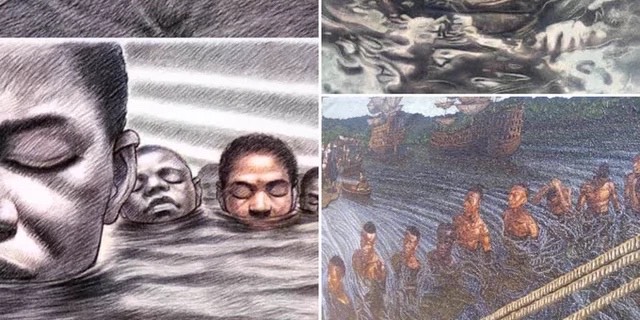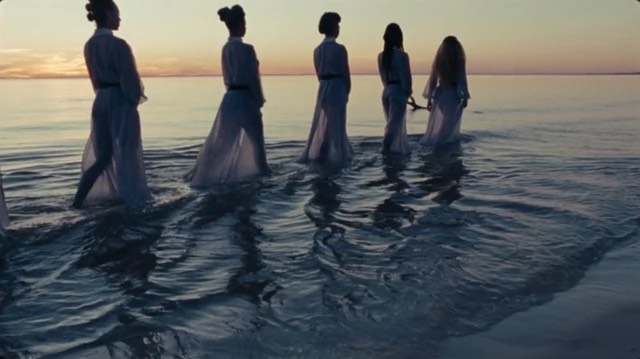The Igbo Landing is a story of defiance and courage in the face of slavery. Not only is The Igbo Landing a place located on St. Simons Island in Glynn County, Georgia, but it also signifies the poignant tale of Igbo captives from Nigeria who were forcefully transported to the Georgia coast in 1803.It is one of the largest mass suicides of enslaved people; allegedly 75 Igbo slaves chose suicide over forced servitude.
On the slave ship called the Wanderer in May 1803, the Igbo arrived as prisoners in Savannah, Georgia, after being bought by slave merchants John Couper and Thomas Spalding for an average of $100 apiece. They bought them so she could resell them to plantations on nearby St. Simons Island.
On the slave ship called the Wanderer in May 1803, the Igbo arrived as prisoners in Savannah, Georgia, after being bought by slave merchants John Couper and Thomas Spalding for an average of $100 apiece. They bought them so she could resell them to plantations on nearby St. Simons Island.

During the voyage, the oppressed slaves chained below the deck of the ship bravely rebelled, seizing control of the ship. They overcame their oppressors and, ultimately, sank the vessel in Dunbar Creek, drowning their former masters.
The sequence of events that followed is shocking but true. Led by their esteemed high chief, the Igbos advanced towards the water, their voices harmonizing in a resounding song. They then followed his lead and walked into the marshy waters of Dunbar Creek, committing mass suicide.
This is a historical, verifiable story. The first report of the occurrence was written by Roswell King, a white overseer on the nearby Pierce Butler farm. Many of the drowned victims were discovered by him and another man only identified as Captain Patterson.
The sequence of events that followed is shocking but true. Led by their esteemed high chief, the Igbos advanced towards the water, their voices harmonizing in a resounding song. They then followed his lead and walked into the marshy waters of Dunbar Creek, committing mass suicide.
This is a historical, verifiable story. The first report of the occurrence was written by Roswell King, a white overseer on the nearby Pierce Butler farm. Many of the drowned victims were discovered by him and another man only identified as Captain Patterson.

According to some reports, it's possible that not all 75 Igbos drowned. Although 13 bodies were found, others remain missing, leaving room for hope that some may have survived the suicide attempt. This means the exact number of deaths is unknown.
The Igbo landing has inspired numerous books and movies, but it is Beyonce's "Love Drought" music video scene that has captivated audiences the most with its powerful portrayal of mass resistance.
It shows the defiance and strength of the Igbos and the evils of slavery and slave trade. Many people have suggested that an actual physical monument be made in their honor.
The Igbo landing has inspired numerous books and movies, but it is Beyonce's "Love Drought" music video scene that has captivated audiences the most with its powerful portrayal of mass resistance.
It shows the defiance and strength of the Igbos and the evils of slavery and slave trade. Many people have suggested that an actual physical monument be made in their honor.
